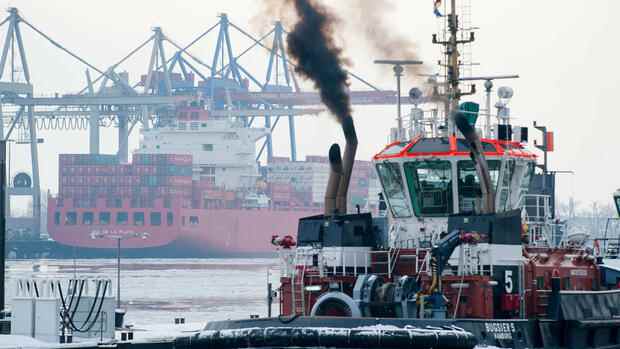Emissions from traffic must also be reduced more in the future.
(Photo: imago images/Joerg Boethling)
Brussels Emissions that are harmful to the climate in areas such as buildings, transport, agriculture and waste must be reduced more in the future in the EU. On Tuesday evening, the EU states and the European Parliament agreed on the so-called burden-sharing regulation, as announced by the Czech Council Presidency. It stipulates that EU countries must reduce climate-damaging emissions in certain sectors more quickly by 2030. How strict the goals of the states are depends, among other things, on the economic power of the individual countries. The reduction target for Germany – the largest economy in Europe – was raised from 38 to 50 percent, while the poorest EU country, Bulgaria, has a target of 10 percent.
“Today’s agreement creates clarity about the efforts required in each member state and ensures solidarity in achieving the European climate goals,” said EU Climate Commissioner Frans Timmermans. The sectors under the regulation are responsible for 60 percent of greenhouse gas emissions in the EU. The rules are intended to create incentives for additional measures to emit less carbon dioxide (CO2). The resolution still needs to be formally approved before the law can come into force, but this is considered a formality.
The regulation is part of the large “Fit for 55” climate package that the EU Commission presented last year. The aim is for the EU to reduce its emissions by 55 percent by 2030 compared to 1990, and to emit none at all by 2050. Other parts of “Fit for 55” such as an expansion of emissions trading – in which industry has to pay for CO2 emissions – are still being negotiated by the states and parliament.
More: What the new EU debt rules look like and what concerns there are
Top jobs of the day
Find the best jobs now and
be notified by email.
